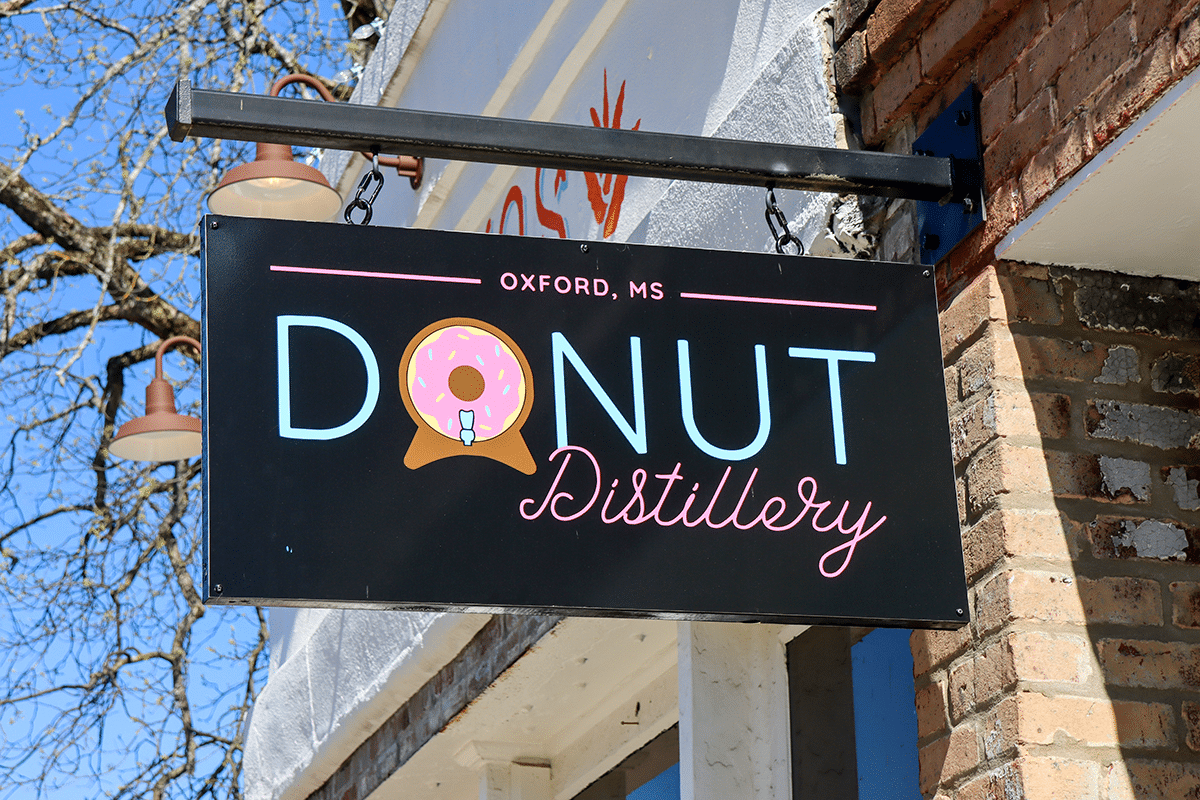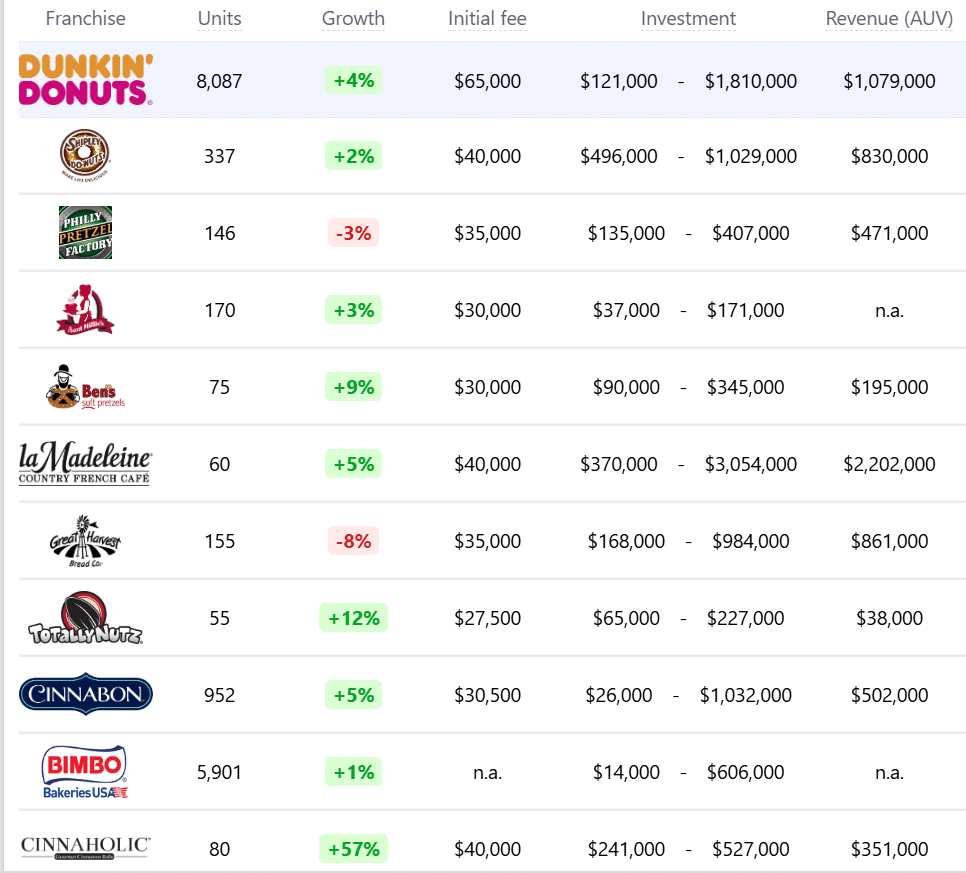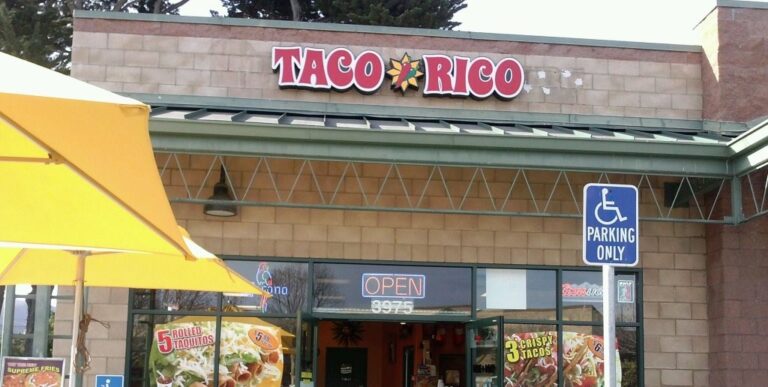Donut Distillery Franchise FDD, Profits & Costs (2025)

Donut Distillery is a franchise specializing in gourmet mini donuts and unique beverages. These include local craft beers, prosecco, and creative coffee cocktails. Founded in 2017 by Shauna McCoy in Nashville, Tennessee, it started as a food truck before opening a storefront in East Nashville.
The headquarters remain in Nashville, highlighting its local roots. The franchise began expanding in 2021, offering opportunities to bring its concept to new markets. The menu includes mini donuts with toppings like Whiskey Glaze, Fruity Pebbles, and Reese’s.
Spiked milkshakes, boozy coffees, and cocktails complete its unique offerings. This blend of artisanal donuts and alcoholic drinks sets it apart from standard donut shops.
Currently, Donut Distillery operates multiple locations across the United States, including East Nashville, Tennessee; Houston, Texas; and Oxford, Mississippi.
Initial Investment
How much does it cost to start a Donut Distillery franchise? It costs on average between $198,000 and $330,000 to start a Donut Distiller franchised restaurant.
This investment includes various startup expenses, including the franchise fee, equipment, signage, seating, and other essential costs. The initial franchise fee is $29,900, granting you the rights to operate under the Donut Distillery brand.
Average Revenue (AUV)
How much revenue can you make with a Donut Distillery franchise? A Donut Distillery-franchised restaurant makes an average of $500,000 in revenue (AUV) per year. However, actual performance would depend on specific operational and market conditions, such as location, size, and customer base.
Here are 10 Donut Distillery competitors as a comparison:

Frequently Asked Questions
How many Donut Distillery locations are there?
According to the latest data, Donut Distillery operates three locations, one of which is company-owned and two franchise-owned. The brand’s growth has been driven by its innovative concept and franchise expansion efforts.
What is the total investment required to open a Donut Distillery franchise?
The total investment required to open a Donut Distillery franchise ranges from $198,000 to $330,000.
What are the ongoing fees for a Donut Distillery franchise?
Donut Distillery franchisees are required to pay a 5% royalty fee on gross sales and a 1% advertising fee. These fees support brand development and marketing initiatives.
What are the financial requirements to become a Donut Distillery franchisee?
To become a Donut Distillery franchisee, you need a minimum net worth of $29,900 and at least $29,900 in liquid capital. These financial requirements ensure you have the necessary resources to establish and operate a franchise successfully
How much can a Donut Distillery franchise owner expect to earn?
The average gross sales for a Donut Distillery franchise are approximately $0.5 million per location. Assuming a 15% operating profit margin, $0.5 million yearly revenue can result in $75,000 EBITDA annually.
Who owns Donut Distillery?
Donut Distillery is owned by Shauna and Todd McCoy, who founded the business in Nashville, Tennessee, in 2017.
Disclaimer
Disclaimer: This content has been made for informational and educational purposes only. SharpSheets is an independent educational resource and is not affiliated with, endorsed by, or representing any franchisor mentioned on this website. Where noted, figures are taken from the franchisor’s Franchise Disclosure Document (FDD). In some cases, we may provide independent calculations or estimates based on publicly available information. We do not make any representation or warranties with respect to the accuracy, applicability, fitness, or completeness of the information presented in the article. You should not construe any such information or other material as legal, tax, investment, financial, or other professional advice. Nothing contained in this article constitutes a solicitation, recommendation, endorsement, advertisement, or offer to buy or sell any franchises, securities, or other financial instruments in this or in any other jurisdiction in which such solicitation or offer would be unlawful under the franchise and/or securities laws of such jurisdiction.
All content in this article is information of a general nature and does not address the detailed circumstances of any particular individual or entity. Nothing in the article constitutes professional and/or financial and/or legal advice, nor does any information in the article constitute a comprehensive or complete statement of the matters discussed or the law relating thereto. You alone assume the sole responsibility of evaluating the merits and risks associated with the use of any information or other content in this article before making any decisions based on such information or other content.




